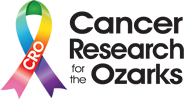Alliance A191901
This phase III trial compares an additional support program (text message reminders and/or telephone-based counseling) with usual care in making sure breast cancer patients take their endocrine therapy medication as prescribed (medication adherence). Medication adherence is how well patients take the medication as prescribed by their doctors, and good medical adherence is when patients take medications correctly. Poor medication adherence has been shown to be a serious barrier to effective treatment for hormone receptor positive breast cancer patients. Adding text message reminders and/or telephone-based counseling to usual care may increase the number of days that patients take their endocrine therapy medication as prescribed.
NRG-CC011-temp hold
This Phase III trial will examine the efficacy of computerized cognitive training methods on perceived cognitive impairment in breast cancer survivors.
SWOG S1501
Phase III Trial, Prospective Evaluation of Carvedilol in Prevention of Cardiac Toxicity in Patients with Metastatic HER-2+ Breast Cancer
SWOG S1703
This randomized research trial studies how well serum tumor marker directed disease monitoring works in monitoring patients with hormone receptor positive Her2 negative breast cancer that has spread to other places in the body. Using markers to prompt when scans should be ordered may be as good as the usual approach to monitoring disease.
Wake Forest WF-2202
The goal of this clinical trial is to develop an effective internet-delivered program to help breast cancer survivors manage cancer-related sexual concerns. Participants will complete a questionnaire and if they qualify, they will be assigned to one of sixteen groups of participants. Groups will get access to various kinds of help through an Internet-delivered program called SHINE, which was designed and is run by researchers at the University of Virginia Center for Behavioral Health and Technology. All groups will get access to education about sexual health after cancer: either a standard education website or an enhanced education web program. Groups may also receive up to three additional web programs on: talking to your clinicians about sexual concerns, and/or talking to your partner about sexual concerns, and/or increasing intimacy. Participants are asked to complete the SHINE program within 12 weeks. After participants finish this 12-week period, the study team will ask them to complete a questionnaire to check in with the participant. The participant will be asked one additional time 12 weeks later to complete another questionnaire to see how the participant is doing. A participant will be in the study for 24 weeks.
